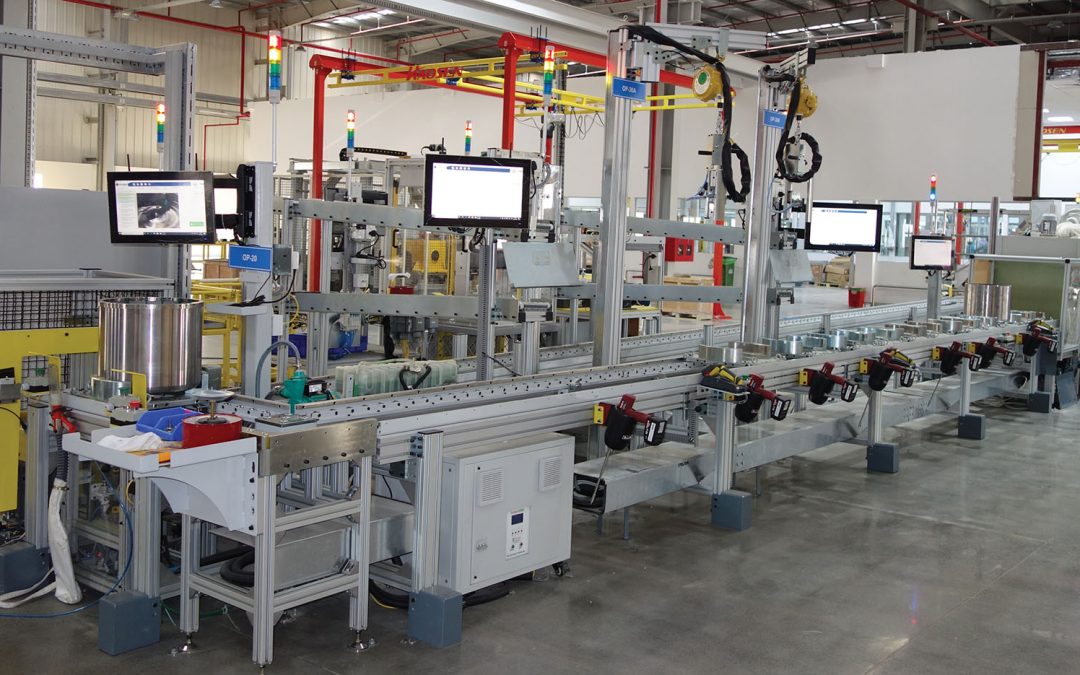
Your guide to safe and efficient EV manufacturing
Jendamark India CEO Himanshu Jadhav shares his industry expertise in the latest issue of EVreporter magazine.
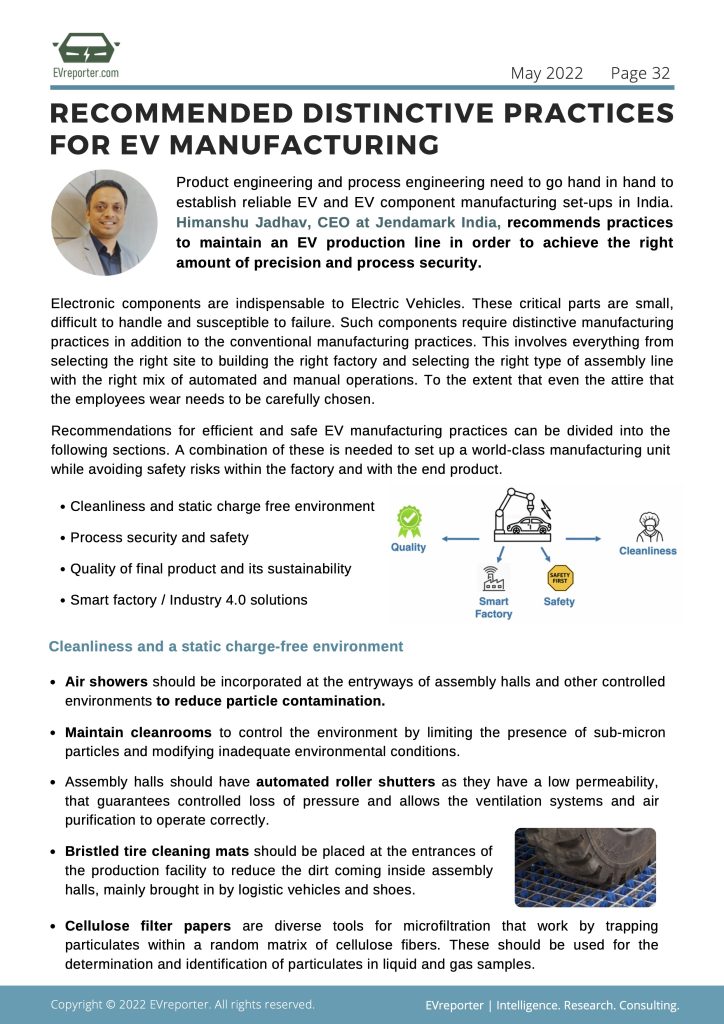
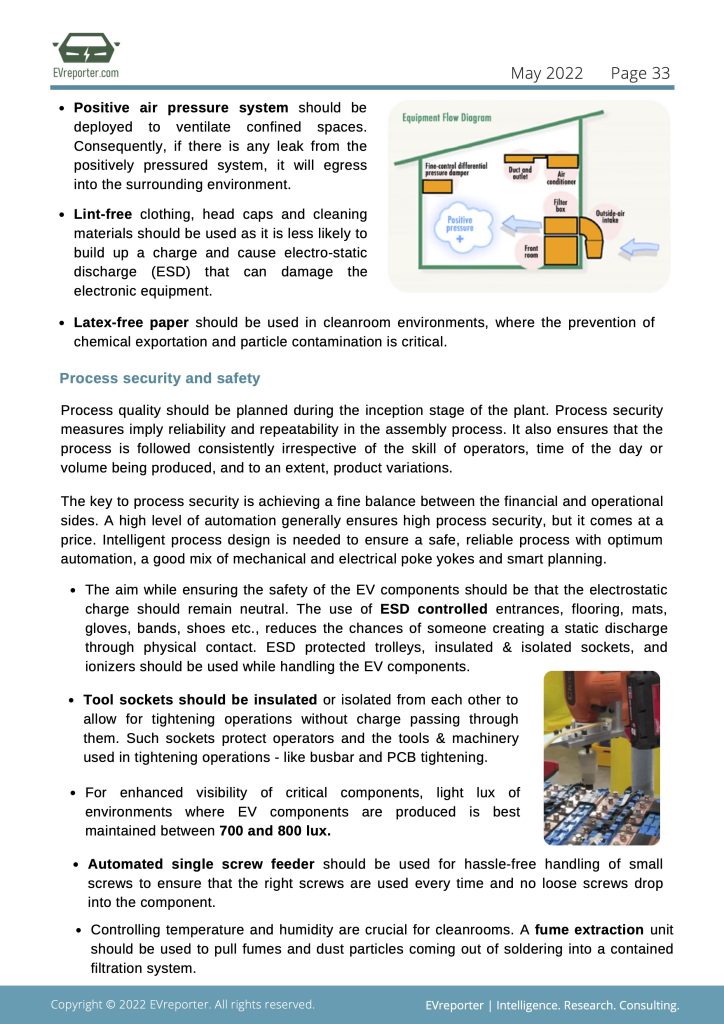
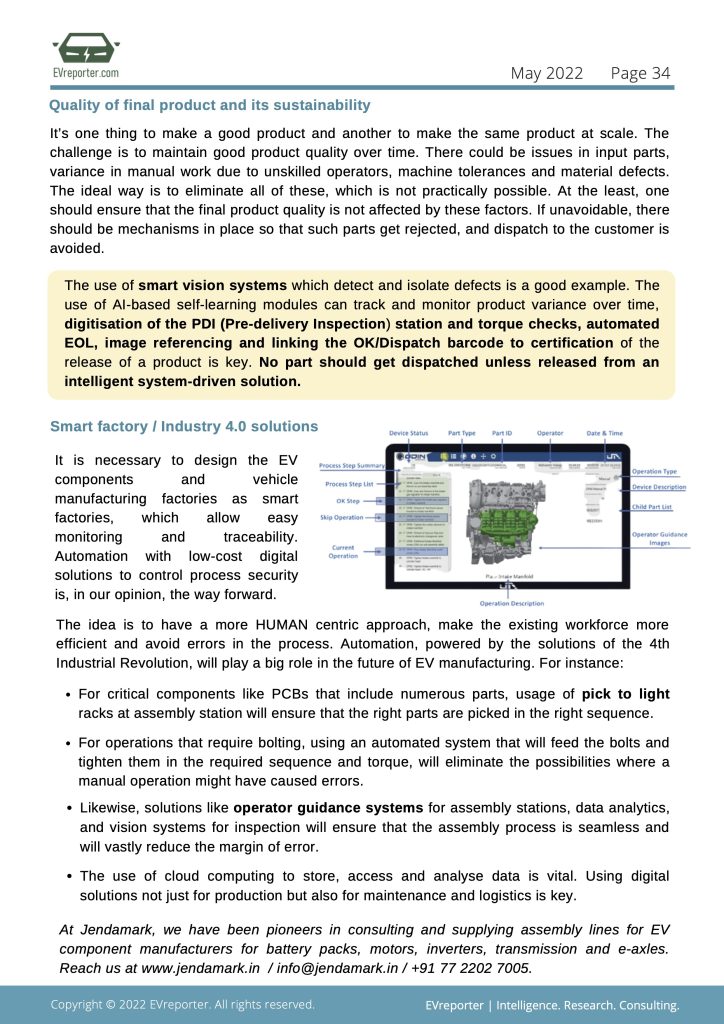
Source: EVreporter




Source: EVreporter
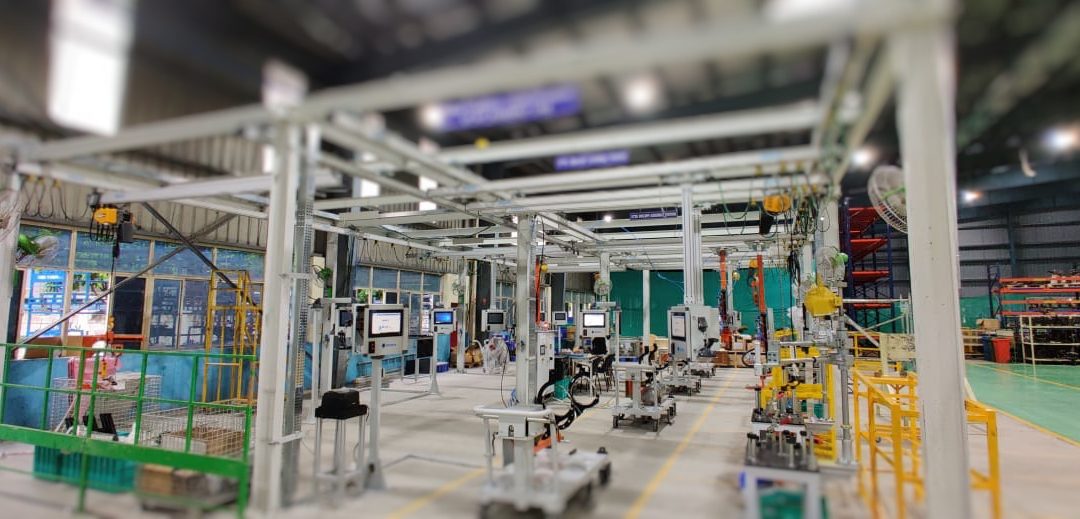
NOW we are proud to bring you our NEW full-service offering that includes:
We offer a ONE-STOP SHOP with flexible, complex engineering solutions:
We are proud to assist our automotive customers in meeting the Bharat Stage VI vehicle emission standards – and clear the air for a healthier, happier atmosphere in cities across India!
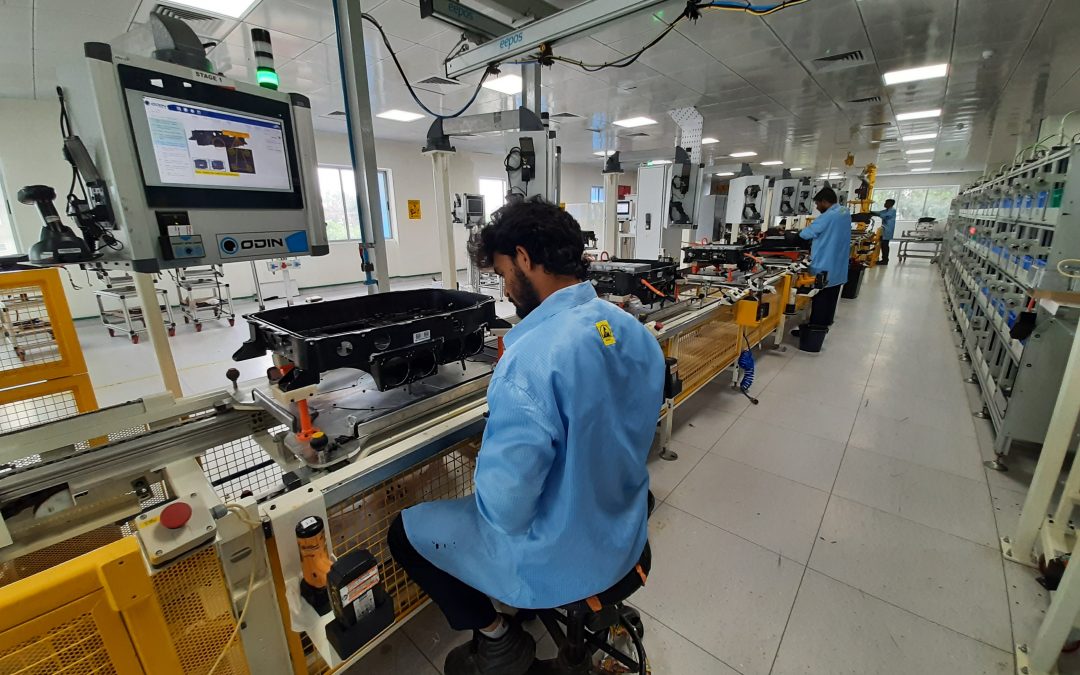
India’s proposed EV incentive scheme is set to offer significant tax breaks for consumers on the road to achieving a targeted 30% share of all new vehicle sales by 2030.
“Our government is really pushing this issue,” says Jendamark India’s CEO, Himanshu Jadhav. “To achieve this, the government is planning to reduce general sales tax on EVs from 12% to 5%. A few months ago, it was reduced to 12% from 18%.”
Another proposal already implemented is that those buying electric vehicles will receive an additional income tax deduction of Rs 1,50,000 on the interest paid on loans taken to buy electric vehicles.
As a result, he says, buyers are warming to the idea of this new vehicle technology.
“According to a recent survey, 50% of car buyers in India are ready to switch to EVs if the infrastructure is available.”
GOING GREEN
But, incentives aside, the global population in general has a growing awareness of the need to go green.
“Awareness and sensitivity towards climate change and pollution issues is a hidden force for the surge in EV market. Every individual globally wants to reduce his or her carbon footprint,” says Jadhav.
This burgeoning market has seen original equipment manufacturers (OEMs) in India venturing into and ramping up their EV production, which has had a knockon effect for suppliers forced to embrace these new technologies.
Jendamark India has been at the leading edge of these industry developments, designing and building the first battery pack and power electronics assembly line in the country for Mahindra Electric Mobility Ltd.
Power electronics consist of a charger, variable frequency drive and all electrical signal processors which power the vehicle, whereas a power pack is a cluster of batteries put together as a pack which powers the vehicle.
“Battery pack assembly is new technology in India and local equipment manufacturers are not available for EV manufacturers in India, so we have had to depend on European and Chinese equipment suppliers,” Jadhav explains.
“However, Jendamark has invested strongly in the research and development, design and manufacturing of such equipment in India. Our Industry 4.0-enabled assembly lines are helpful in increasing production and lowering the manufacturing cost of battery packs that fit in EVs.”
In fact, battery costs are expected to be cut by half while performance is expected to double over the next decade.
BUILDING BATTERIES
Jendamark’s global head office in South Africa has played an integral role in the design process for Jendamark India’s first EV power pack assembly lines, providing the benefits of its three decades of automotive expertise where needed.
“Following the design phase, we recently built and supplied two assembly lines, both manufactured in India, and are in the process of executing an expansion project for the addition of new variants on the existing lines,” says Shashikant Chaudhari, who was Jendamark India’s management representative on this project.
The human component has also not been overlooked when it comes to technological development.
“Batteries being assembled carry charge. Human safety is very important when you handle charged batteries. Using Jendamark’s own digital manufacturing software, Odin, we monitor and instruct operators in following right assembly sequence to ensure their safety.“
While venturing into new territory has had its challenges, Chaudhari says it has been an exciting journey so far.
“Jendamark is an expert in powertrain solutions for internal combustion vehicles, while EVs have a completely different powertrain. But EVs have brought us tremendous new learning opportunities.”
FACT BOX: CLEARING THE FOG
At the heart of India’s push towards EVs is the government’s all-important clean energy policy aimed at reducing toxic pollution levels.
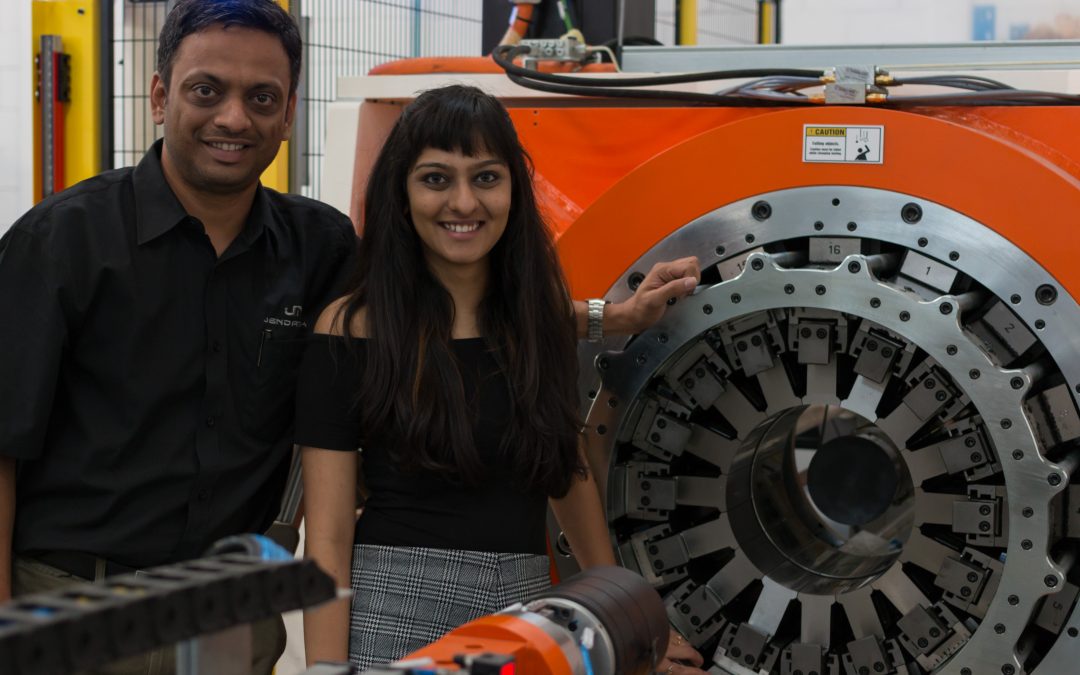
Essentially, the lines assemble the canning section of the catalytic converter, which is an emission reduction device incorporated into the exhaust system of a vehicle.It is made up of a coated monolith and intumescent mat inside a stainless steel can. The mat acts like a spring and, when compressed, exerts pressure to hold the monolith inside the can.
“In its simplest form, the device converts hydrocarbons, carbon monoxide and nitrogen oxides into water, carbon dioxide and nitrogen. Using catalysts like platinum, palladium and rhodium, it takes in harmful gases and puts out less harmful ones,” explains Jendamark India CEO Himanshu Jadhav.
Assembling the canning section of the converter requires a great deal of accuracy, which is why most of Jendamark’s canning lines are semi- to fully automated, incorporating a wide variety of robotic, electronic and mechanical components to reduce the risk of human error, says Jadhav.
CHANGING NORMS
“As anti-pollution efforts ramp up worldwide, the catalytic industry is now worth billions of dollars and growing at a rapid rate, with new technologies continuously being implemented.”
Naturally, he says, keeping up with the burgeoning industry presents a number of challenges. “Because of varying global emission norms, catalytic convertors have become larger and there are more irregular and non-round shapes than before,” Jadhav says.
“At the same time, the canning lines are required to turn out larger volumes, with shorter cycle times.”
MEETING CHALLENGES
To deal with the ever-present challenges, Jendamark developed standard machines that accommodate at least 90% of the odd-shaped parts, while the small margin that do not fall within the standard part range are handled by custom-designed machines.
“We design the lines according to the customer’s specifications and deliver a product that outputs the volumes and cycle times required,” Jadhav says. Another innovation born of necessity is the hybrid line, capable of producing pre-and post-sizing parts using common equipment.
“We have created a prototype division that is helping Tier 1 suppliers and original equipment manufacturers with part and process development, as well as manufacturing prototype parts for use in test vehicles.”
ADDING ADBLUE
In addition to the standard canning lines, Jendamark also produces complete catalytic converter assembly systems with AdBlue technology. As Jadhav explains, AdBlue is a reagent, comprised of a synthetic urea solution, that is injected into the exhaust gases of modern diesel-powered vehicles, which emit more smog-causing nitrogen oxides than petrol engines.
“With the assistance of the catalytic converter, AdBlue changes toxic exhaust gas into harmless nitrogen and steam for cleaner emissions. It’s an essential element in modern vehicles fitted with a Selective Catalytic Reduction (SCR) system, which helps to meet the levels required under the Bharat Stage Six and Euro Six norms.”
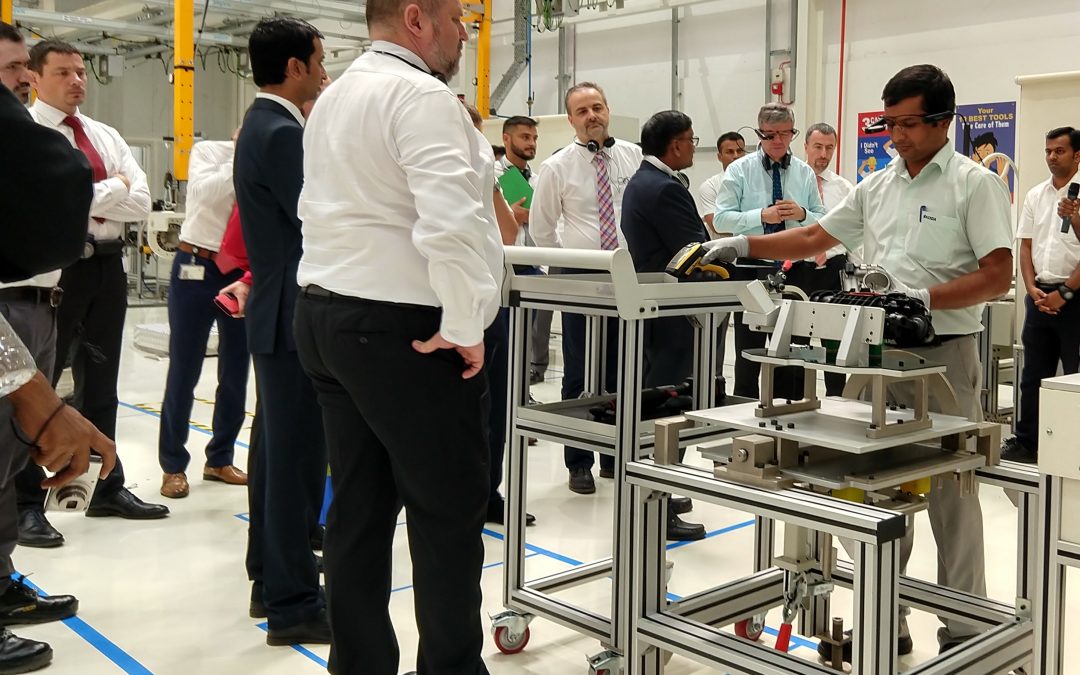
This year, Jendamark Techcellency (JMKT) delivered a first for India and its biggest order to date – an innovative engine assembly line that uses augmented reality to guide its operators.
In May, this line was installed in the Skoda plant in Aurangabad, where it is being used to assemble four-cylinder R4 and six-cylinder V6 engines. The €2.5 million production line, which took 10 months to complete, has successfully produced the pilot series of engines and is currently gearing up for a ramp up in volumes.
JMKT operations director Himanshu Jadhav says the Industry 4.0-driven project was not just a first for the JMKT
team but for the customer too.
“As a turnkey project, it was extremely complex and many of the aspects had never been done before. Our engineers spent a considerable amount of time understanding the requirements, coming up with innovative solutions and making it work.
“This line has several unique solutions – from a mechanical, electrical and IT point of view – which showcase our
capabilities as a leading tech-oriented company,” says Jadhav.
First among these is the use of augmented reality glasses in the production environment to guide the operator through the assembly process. There is also the extensive use of tools and gauges that transfer critical production data via a wireless network.
“All of these Industry 4.0 solutions are based on our Odin software platform,” says Jadhav.
“We also gave our customers a realistic feel for the line and a chance to suggest improvements – before a single part was manufactured – using THEIA, our virtual reality solution.”
The complete line entailed the design and manufacture of more than 300 items required for the assembly of the engine in the most cost-effective way, without compromising on quality.
Teams from South Africa, Germany and India were involved in every aspect of the project from design to execution.
“The whole global team put in long, hard hours but our passion to deliver and an uncompromising approach towards results saw us execute this project to the best of our abilities and ensure customer satisfaction.”